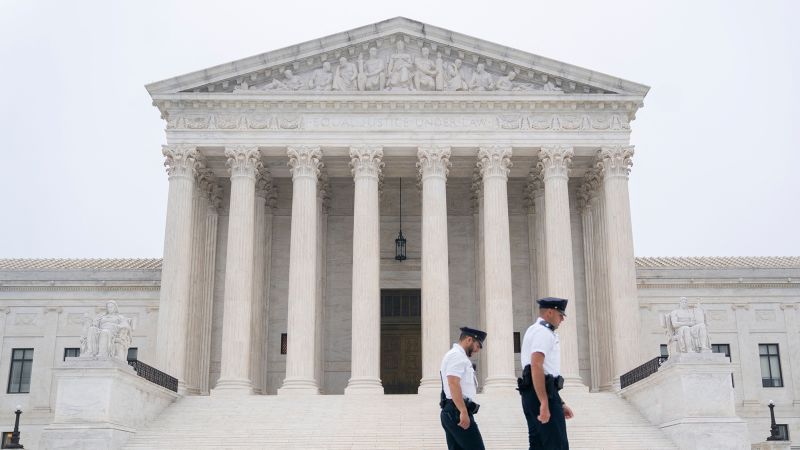

Washington
CNN
—
The Supreme Court on Wednesday ruled in favor of an Arizona death row inmate who argued he should be able to challenge his sentence in federal court but was stopped from doing so by a state procedural rule.
Justice Sonia Sotomayor penned the 5-4 majority decision, which was joined by Chief Justice John Roberts and Justices Elena Kagan, Brett Kavanaugh and Ketanji Brown Jackson.
John Montenegro Cruz was convicted of the murder of a Tucson police officer in 2003 and sentenced to death. At his trial, as the jury was considering whether to impose a sentence of life or the death penalty, Cruz’s lawyer repeatedly asked if he could inform the jury that he would not be eligible for parole if he got a life sentence.
He cited the fact that in 1994, the Supreme Court held in Simmons v. South Carolina that due process entitled a death row inmate to inform the jury of parole ineligibility when future dangerousness is at issue. He lost the bid and received a death sentence. When Cruz appealed, the Arizona Supreme Court affirmed the lower court, concluding that Simmons did not apply in Arizona.
In 2016, the Supreme Court ruled in Lynch v. Arizona that Simmons does apply in Arizona. Cruz appealed anew and was once again denied.
The state pointed to a procedural rule that says in order to appeal, there has to be a “significant change in the law.” The Arizona Supreme Court said the Lynch holding was not a significant change.
“Although this is a very technical ruling, its basic gist is that state supreme courts can’t rely upon novel state procedural rules to prevent state prisoners from bringing federal constitutional claims,” said Steve Vladeck, a CNN Supreme Court analyst and professor at the University of Texas School of Law.
“(John) Cruz may or may not prevail on his federal claim – that he had a right to have the jury know that a life sentence would be without parole. But he now gets to make that argument in the first place,” Vladeck said.
